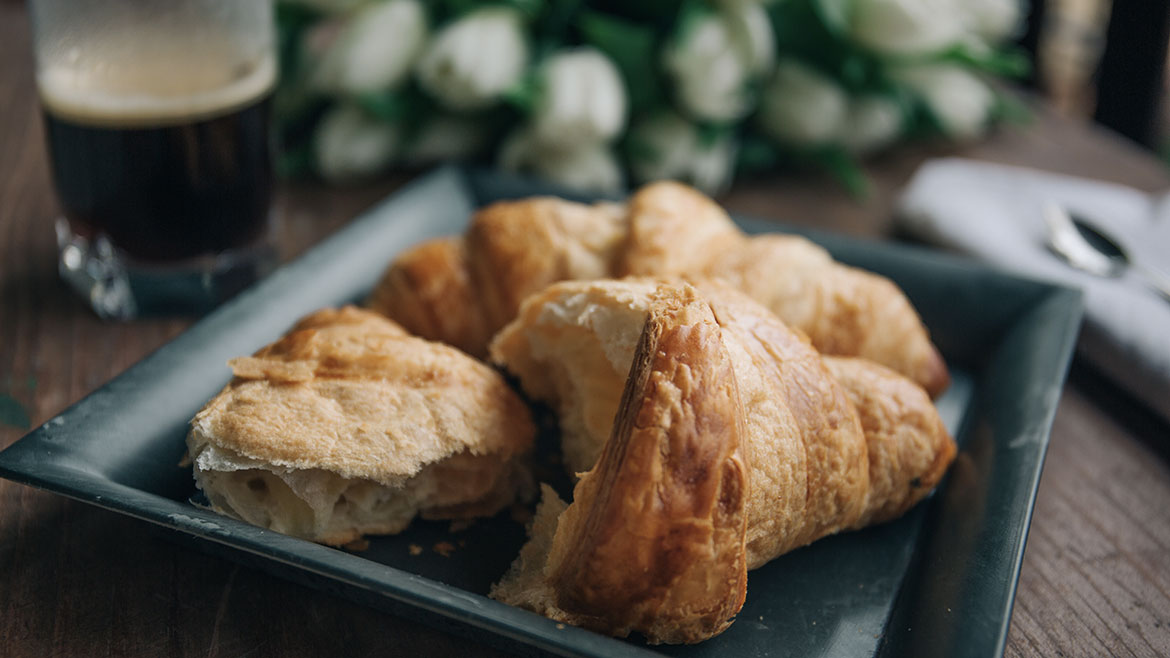
This one French breakfast habit will leave you shocked
Breakfast is my favourite meal, which is weird because it’s the only meal of the day where you don’t get to drink alcohol (unless it’s Christmas or you’re British at an airport). And while I’m genetically predisposed to love and revere the great British fry up, even I would admit that the classic French breakfast is at least as good, if not better than its rival from the island over the Channel.
Where the full English is all about sating a longing for salty, greasy protein (often soaking up last night’s excesses) le petit dej is a sweeter affair, centred around rich breads and pastries (or viennoiseries). Croissants, brioche, pain au lait, and many-splendored varients of these, stuffed or garnished with chocolate, nuts, fruit, crème pâtissière, fill the boulangerie windows and your waistline, give half a chance.
Being something of a purest, I like nothing better than a good baguette. Slather it in beurre demi-sel, sweeten with jam – ideally homemade not by me – and I’m as happy as a cochon in caca.
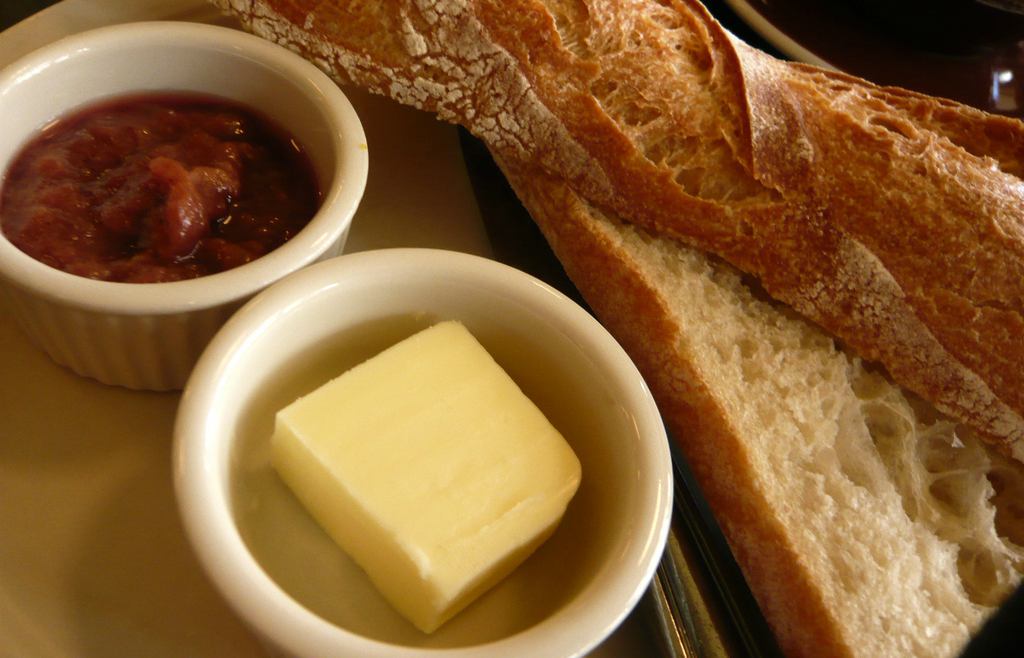
Breakfast of champions
Food aside, another joy of breakfast in France is that it is more relaxed than other meals, with few pièges awaiting the humble foreigner, unless you count those inordinately large bowls the French prefer their morning drink in, and which I invariably and mistakenly eat cereal from, receiving askance looks as my comeuppence. (Yes, you can eat cereal in France; there’s no state-sponsored croissant-enforcing squad yet.)
Could anything disturb this idyll of carbohydrates and laissez-faire? I’m afraid that the answer is a resounding OUI. Let me tell you; I hope you’re sitting down.
I had recently moved to France and was having breakfast with a handsome, intelligent, well-brought-up (this last point is important, the first two are plain boasting) Frenchman whom, for reasons of discretion, I shall refer to simply as Louis-Philippe-Jean-Claude. Over coffee, baked goods and chatter, LPJC did something which, to him, was of the utmost inconsequence but which shocked me to that point that I felt my whole world tilt by several degrees.
What was this act, so devastating and unnatural?
He dunked his baguette in his coffee.
His buttered baguette.
Now I’m no snob; I love a good dunk as much as the next person but I had never seen anyone willingly get bread wet like this before. Drop a pizza in puddle, certainly; cry into cake, well, haven’t we all? But to intentionally make bread soggy? This is nothing short of a food crime.
What exactly is wrong with this, you might be wondering if you are mad or French ? I’ll tell you in two words: sludgy deposits. Dunking can only be done with hard biscuits that remain structurally sound while submerged in hot liquids. That’s just science. Leave your biscuit in too long and it will become saturated and break away, falling to the bottom of your cup where it turns into a sort of biscuit slurry. This is a very real danger that can happen with hard biscuits like digestives; what folly possesses someone to dunk with a crumbly, flaky food like a baguette?
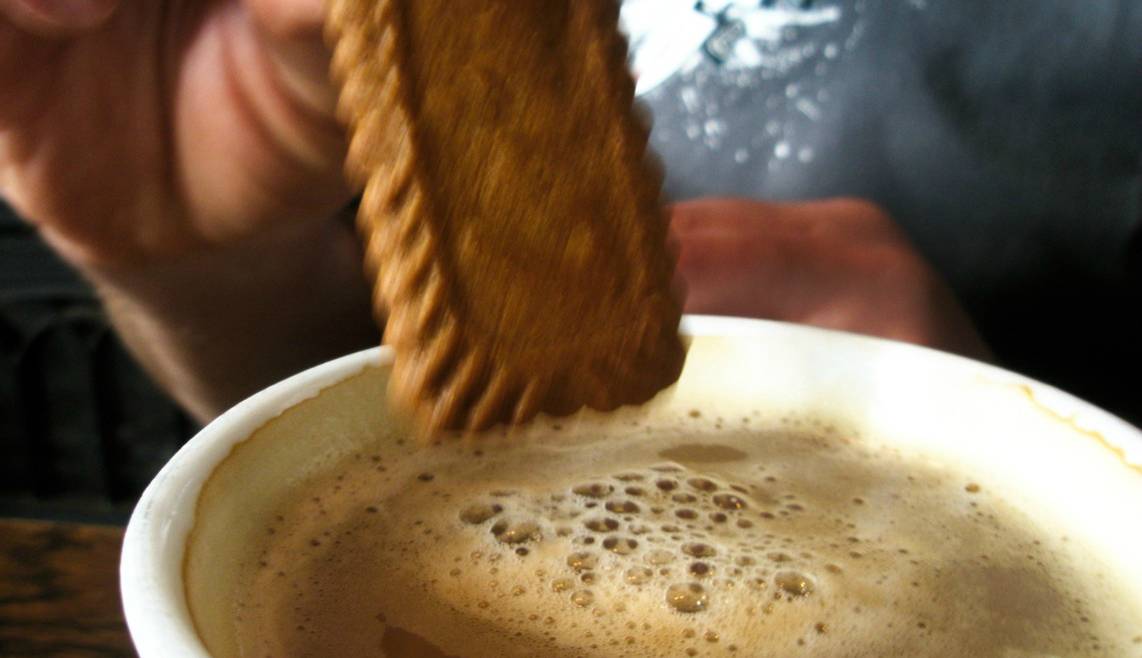
Dunking with a biscuit, as God intended
At first I thought it was a personal foible, a quirk that could be addressed with patience and good example. I was wrong. Not only was LPJC utterly unrepentent about his bread wetting, whole swathes of French people – decent, well mannered, responsible adults – do exactly the same. I’ve seen variations of the same act in homes, hotels and cafés across France: croissants in hot chocolate, brioche in tea, there really is no limit.
One of French literature’s most quoted passage is even about inappropriate dunking. In Proust’s A la recherche du temps perdu, the author reminisces about dunking a madeleine in tea. A soft, crumbly madeleine, for God’s sake!
“… je portai à mes lèvres une cuillerée du thé où j’avais laissé s’amollir un morceau de madeleine…”
A la recherche du temps perdu, Marcel Proust
At least Proust had the sense to use a spoon and not dunk directly in the cup.

Marcel Proust, writer and spoon user
Believe it or not, we haven’t got to the worst of it yet. Like LPJC, many French people dunk buttered bread in their drinks. Think of the impact of hot liquid on that butter: soon enough you will have a slick of grease glazing your drink, like a giant oil spillage minus the devastated sealife.
If one good thing has come from witnessing this peculier behaviour it is that now we have the explanation for those giant bowls French people like to drink from. They allow plenty of room for super-size dunking. Who could fit a baguette in an ordinary mug?
Eight years later and LPJC remains an occasional dunker; our children have yet to pick up the habit but I have come to accept the inevitable. Only at the breakfast table, mind.
One final note of caution. Should you ever wish to broach this subject with a French person, please be aware that the French translation of “dunk your biscuit” (tremper son biscuit) has a similar meaning to “dipping one’s wick”. You’ve been warned.

Anglophile Americans invented a game where players “dunk” a ball into a symbolic cup of tea, hence the name “biscuitball”
Is it just me or is pain-dunking a painful experience for you? Maybe you’re one of those people who hates all forms of dunking. Or should I get over myself and just try it, for Falkirk’s sake? Let it all hang loose in the comments and please like and share if you’ve enjoyed 🙂
A version of this post originally appeared in The Local.


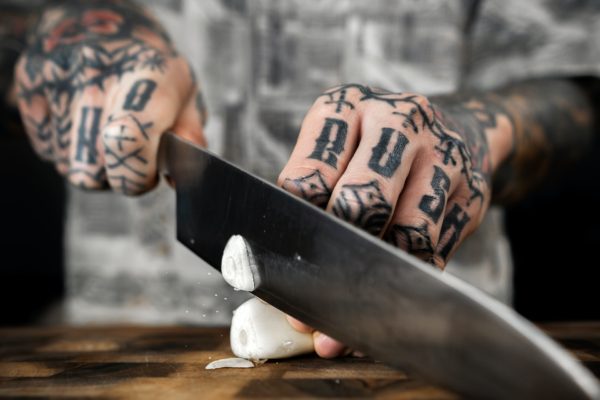


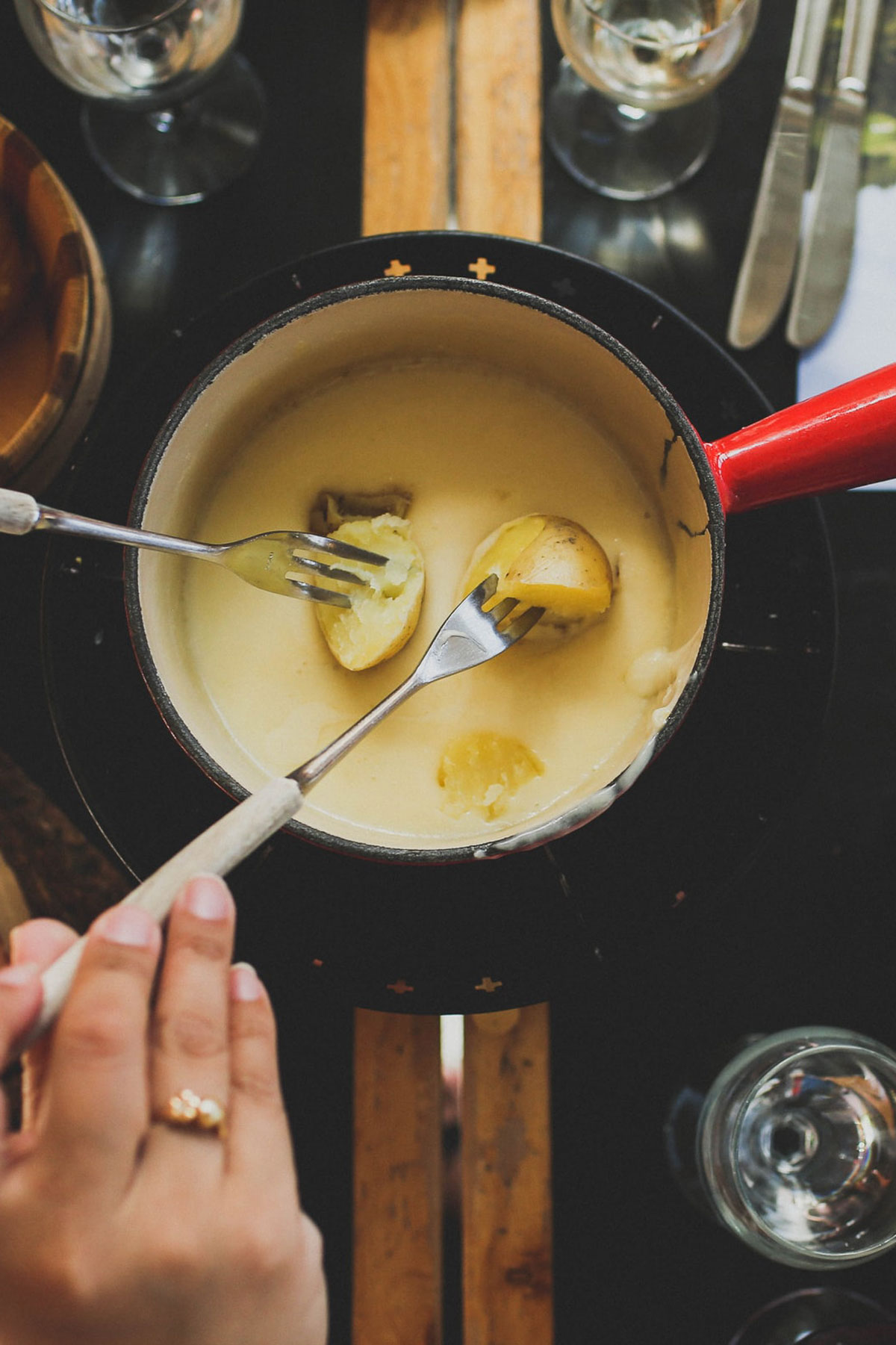
Gillian
After 30 years in France preparing les tartines without a plate directly on the table cloth still shocks me. I have a German friend who dunks buttered bread with raspberry jam and camembert cheese in her coffee. It takes all sorts….
admin
Ahh, you have answered a question for me! I had always wondered if the tartines on the table without a plate was just my in-laws but is it widespread then?
Camembert!!!
Tellou
This is why we have bowls as well: it’s large enough to dunk your baguette or slice of bread. (Personnaly I don’t like it buttered, only with jam). A baguette dunked in a muf would not fit of course.
I remember the shock of horror of Brits in a cafe in Oxford when they used to see me dunking my perfectly triangular toast into my mug of tea or hot chocolate.
admin
That’s so funny! Toast in tea, now there’s a thought…